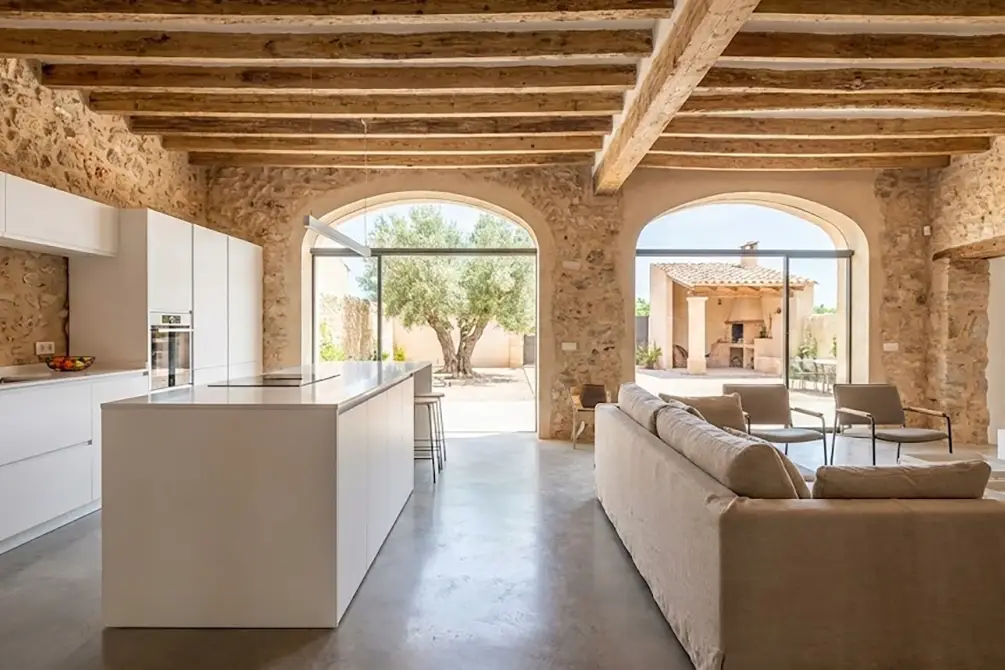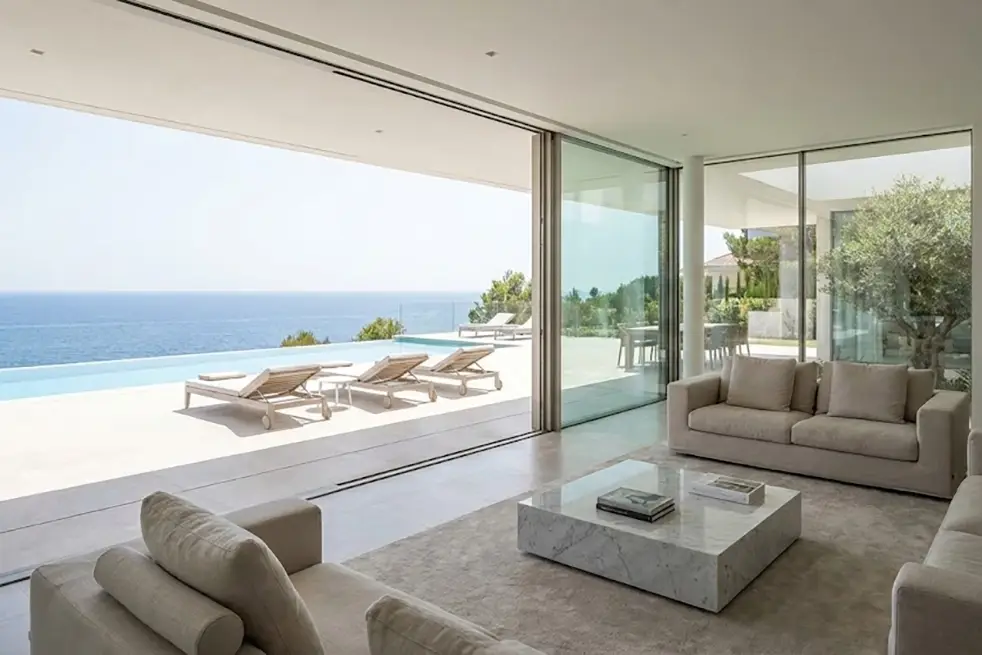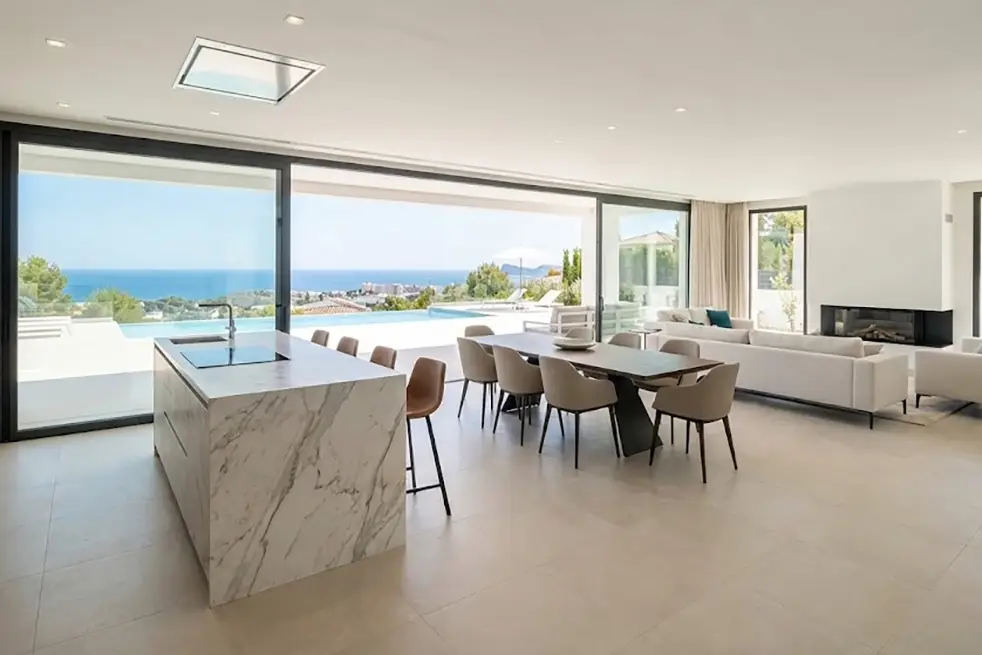In the Costa Blanca and throughout the Comunidad Valenciana, renovating a home is an increasingly common investment. Whether to improve energy efficiency, update an older property, or adapt a space to new needs, more and more homeowners are choosing to carry out legal renovations on houses, villas, or apartments.
But did you know that many of these works require specific permits from the local council? Starting work without the proper documentation can lead to fines, work stoppages, or legal issues down the line.
At La Quinta Fachada Arquitectura, as specialists in residential projects in areas such as Dénia, Moraira, Benissa, and Ondara, we know that a successful renovation starts with solid administrative planning. That’s why we’re here to clearly explain which permits are essential for legal renovations in the Comunidad Valenciana, and how to avoid common mistakes.
Do i need a permit to renovate my home?
In most cases, yes. While small-scale works may not require permission, it is generally necessary to submit at least a prior notification or obtain a minor or major works licence, especially for renovations that affect the structure, appearance, or energy performance of the property.
In the Comunidad Valenciana, planning legislation and permit procedures are managed by each local council, but there are shared criteria. The best approach is to consult a registered architect who can guide you through the process and help you avoid any issues.
Types of permits for legal renovations on the Costa Blanca
1. Renovations that don’t require a permit (Exempt Works)
Very minor works that do not affect the structure, utilities, or shared elements (in multi-family buildings).
Common examples include:
-
Painting interior walls
-
Changing flooring (without altering the layout)
-
Replacing taps or kitchen units
-
Cladding or tiling internal walls
While these works may not require official permission, it is often advisable to inform the residents’ association if the renovation affects the use of shared spaces.
2. Prior notification of works
This is one of the most common procedures in local councils across the Costa Blanca. It applies to minor renovations that do not affect the structure, but still need to be formally registered.
It requires:
-
A description of the work
-
Basic documentation
-
Payment of a municipal fee
Examples include:
-
Bathroom or kitchen renovations (without structural changes)
-
Replacing external windows or doors
-
Upgrading electrical or plumbing installations
-
Demolition of non-load-bearing interior walls
This is a streamlined process, and work can typically begin just a few days after submitting the request.
3. Minor works licence
This permit is required when the renovation involves alterations to façades, structural elements, communal installations, or any changes visible from the outside.
Common examples include:
-
Enlarging windows or door openings
-
Replacing grilles, shutters, or exterior railings
-
Installing pergolas, awnings, or terrace covers
-
Visible replacement of enclosures or partitions
In areas like Jávea, Dénia, or Moraira, local councils are particularly strict if the property is located in a protected zone, the old town, or in developments with specific aesthetic regulations. Consulting beforehand helps avoid unexpected setbacks.
4. Major works licence
This is essential when structural modifications are involved, additional floor area is being added, or the use of the property is being changed (for example, converting a commercial space into a dwelling).
Required in cases such as:
-
Extensions to the home (e.g. adding a new floor or volume)
-
Works that alter load-bearing structures
-
Full renovation projects requiring technical oversight
-
Change of use, horizontal division, or complete restoration
This type of licence requires a full technical project signed by a registered architect and has a longer processing time, so early planning is key.
What if my renovation is a restoration?
Good question. In many homes along the Costa Blanca, particularly in towns like Benissa, Altea, or the old town of Dénia, renovations are being carried out as restorations. And in these cases, permits are also essential, even if no extensions are involved.
What qualifies as restoration?
-
Structural repair of roofs or floor slabs
-
Complete renewal of utility installations
-
Façade restoration
-
Preservation of original features in historic homes
-
Improvements in energy efficiency or accessibility
In such cases, the project must be processed as a major works licence, or as a protected intervention if the property is listed or located within a BIC (Asset of Cultural Interest) zone.
Our advice: If you’re planning to work on an old village house or a property in a sensitive area, always consult your architect first. At La Quinta Fachada, we regularly manage these types of permits and know how to handle them effectively.
What happens if i renovate without a permit?
Carrying out building work without a permit in the Comunidad Valenciana can lead to serious consequences:
-
Financial penalties and additional municipal charges
-
Immediate stop-work orders
-
Complaints from neighbours or the residents’ association
-
Inability to register the work with the Land Registry
-
Complications when selling the property (it cannot be legalised)
In properties with unauthorised works, even minor unregistered renovations can block a sale. That’s why investing in a legal renovation is also an investment in peace of mind.
How to properly manage your legal renovation
At our architecture studio in Dénia, we handle full renovations, permits, and restoration projects from the very beginning. Our advice is always the same:
-
Don’t start without professional guidance.
-
Check the local urban planning regulations.
-
Rely on registered professionals to manage the entire project.
-
Keep all documents and permits for future reference.
A good renovation starts with the right permit
Renovating a home isn’t just a matter of taste or necessity. It’s also about legality, safety, and long-term value. On the Costa Blanca, where many older or holiday properties are in sensitive areas, complying with permit requirements is essential.
At La Quinta Fachada Arquitectura, we help you design, legalise, and carry out any type of renovation or restoration always with clear, effective solutions tailored to each local authority.




